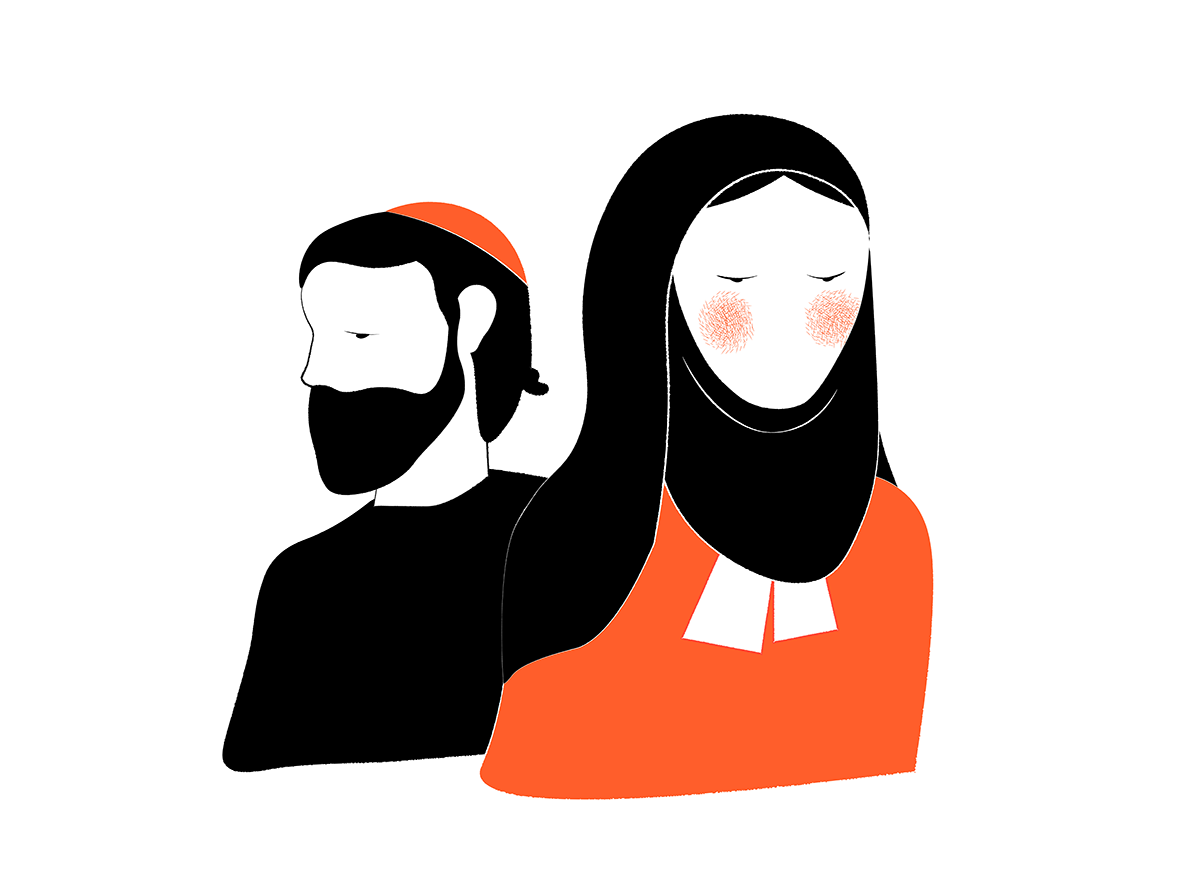Teachers like Bouchera Chelbi, a Muslim woman who chooses to wear the hijab, has noticed changes in Quebec since the enactment of Bill 21. Grandfathered in after the legalization of the bill, Chelbi now has no chance to move up in her career as she is unable to be promoted due to Bill 21.
Enacted in 2019, the bill prohibits the wearing of religious garments and symbols for workers in the public sector in government-run institutions like courthouses or schools.
“It changed a lot about my future plans, I can longer dream about having a higher position, I cannot change school boards. It changes a lot for me,” Chelbi explained.
As a member of the Coalition Inclusion Quebec and someone who is heavily involved in challenging the law, Chelbi feels that it has impacted her on both a career and personal level. Though leaving has crossed her mind, the priorities of being a wife and a mother have made her stay in the province.
“It makes me feel like I don’t fit anymore in the community. Before the bill, I used to feel like I was free as any other woman in Quebec but after, it felt like suddenly I was a second-class citizen.”
A study conducted by researchers from Concordia and McGill has uncovered harsh realities for the next generation of students, particularly minorities, entering the workforce, many of whom will likely be affected by Bill 21’s legislation. Students who wore religious symbols were at a higher risk of experiencing higher discriminatory treatment as well as job prospect uncertainty, prompting many of those surveyed to admit intending to seek work out of province once their diplomas are obtained. Those surveyed felt that Bill 21 had affected their future career decision, especially due to experiencing an uptick in discrimination since the passing of the legislation.
Meir Edery, a third-year law student at Université de Montreal who wears a kippah, felt that Bill 21 has affected him, like many others who wear religious garb. “The law felt like a personal attack. Truthfully, it felt like something that the government was putting forward to show the population that these people are not wanted and valued as a part of society.”
Kimberley Manning, an associate professor in political science at Concordia and one of the authors who helped conduct the study, was interested in researching the effects of students studying in sectors affected by Bill 21.
The majority of the 629 participants surveyed highlighted worsened perception of Quebec since the bill’s legislation, creating more divisiveness rather than its intended unification. “Our findings are suggesting a rise in discrimination. People who wear religious symbols are reporting that they’ve experienced more discrimination since the passage of the law,” said Manning.
The law’s notion was intended to secularize the province, providing neutrality in government institutions. Manning, however, has noticed from the study’s findings that it’s also affecting minorities who do not express themselves religiously.
“This goes way beyond the individuals wearing religious symbols. [It] is clear that people who do not wear religious symbols are experiencing discrimination in the wake of the passage of this law,” she explained.
“There is a great deal of confusion about this law, I think that our research findings and research findings from another study that was done by a professor out of UQAM are suggesting that among the general population there is confusion about what this means.”
This confusion has created a bypass for many people to single out minorities, regardless of whether or not the Law applies to those accused. One respondent reported a teacher telling an 11-year-old that she could not wear her Hijab due to the law, something which is patently false.
The results showed 51.8 per cent of those surveyed said that they are extremely likely to look for work out of Quebec as a result of Bill 21, while 77.9 per cent of respondents were considering leaving the province for employment options elsewhere. “I’ve decided to take the Ontario bar exam because I will likely go work in Ontario, where I feel more welcomed as a religious minority,” said an unnamed female law student at McGill.
As someone who will soon enter the job market for the first time in his life, Edery has to consider his future, as the bill prevents him from taking certain opportunities. “When I was looking at my career options, I knew that I was limited and it’s the first time I’ve ever been limited because of the expression of my religion and that stung, because in the 21st century that shouldn’t be happening to anybody.”
Chelbi referring to feeling like a second-class citizen is a shared sentiment according to Manning’s study. Though a minority of people surveyed were in favour of the bill due to having once faced religious extremism from their native country, 70 per cent of respondents have developed a worsened perception of Quebec.
“That’s really significant, again this is a motivated group who responded to the survey but when you triangulate our results with the results from the recent polling that’s not insignificant. I think it’s really important that our policymakers pay attention to it and consider the negative impact this is having on people’s lives.”
Teachers like Chelbi will continue to challenge the government in regards to the law for future generations of students hoping that they can work in a Quebec that favours religious expression.
Illustration and infographics by Lily Cowper
